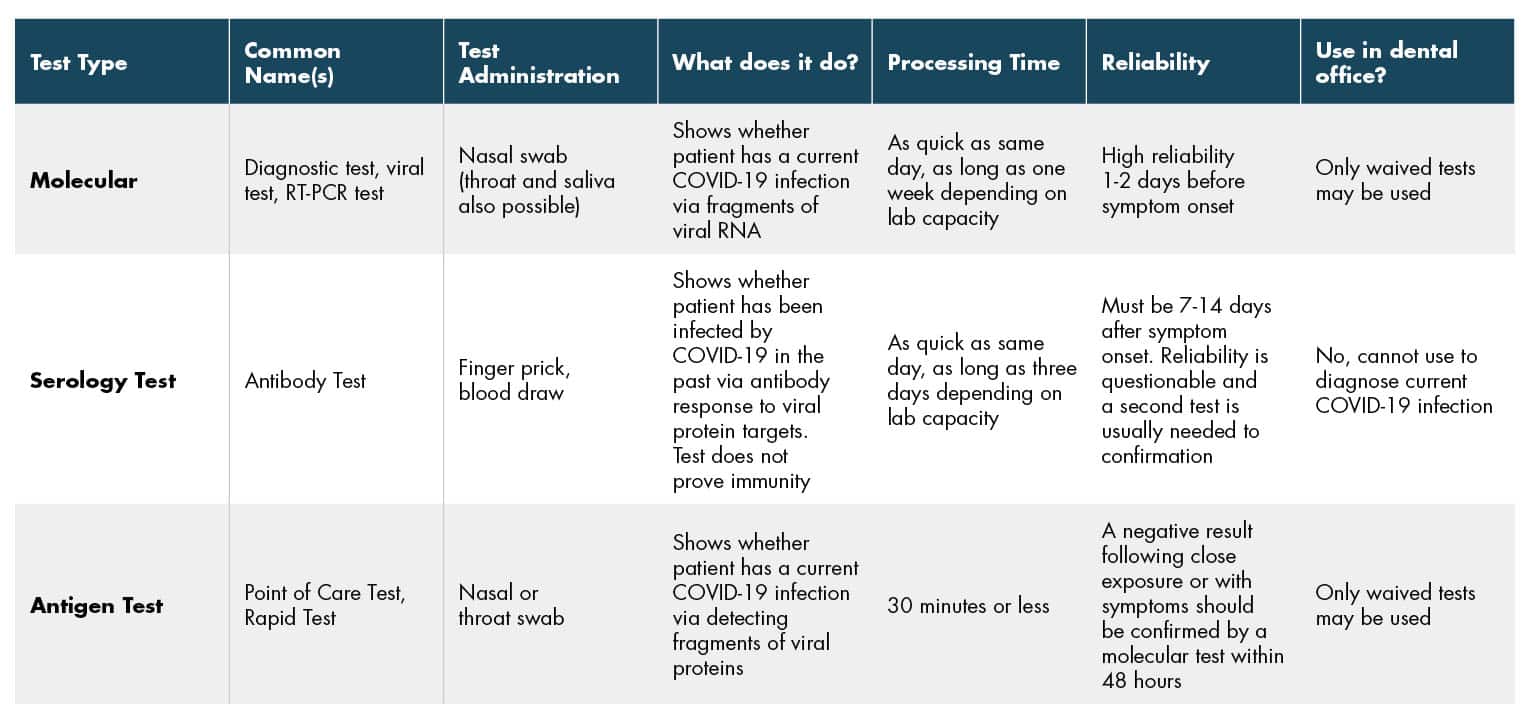It is important that the manufacturer’s instructions are followed, including the use of appropriate PPE, test-processing times, and test material disposal. The above chart details the various COVID-19 testing types, administration, processing time and reliability.
Molecular
- Also known as a diagnostic test, viral test, or RT-PCR test
- Test specimen collected via nasal swab typically; throat and saliva specimen testing also possible
- Shows whether individual has a current COVID-19 infection via fragments of viral RNA
- Processing time can be as quick as one day or as long as one week, depending on lab capacity
- Reliability is high when administered 1-2 days before symptom onset
- Only waived tests may be administered in a dental office
Serology
- Also known as an antibody test
- Test specimen collected via finger prick or blood draw
- Shows whether individual has been infected by COVID-19 in the past via antibody response to viral protein targets. Test does not prove immunity.
- Processing time can be as quick as one day or as long as three days depending on lab capacity
- Test should be administered 7-14 days after symptom onset. Reliability is questionable and a second test is usually needed for confirmation.
- Cannot use test to diagnose current COVID-19 infection.
Antigen
- Also known as a point of care test or rapid test
- Test specimen collected via nasal swab typically; throat and saliva specimen testing also possible
- Shows whether individual has a current COVID-19 infection via detecting fragments of viral proteins
- Processing time is 30 minutes or less
- A negative result following close exposure or with symptoms should be confirmed by a molecular test within 48 hours.
- Only waived tests may be administered in a dental office
Additional resources:

